Solar Panel Grants
The government are making full solar panel grants available to households across the UK. Just fill out our quick application form online to see if you qualify!
Qualify In 3 Simple Steps…
Sound too easy? We promise it really is.
Apply online
Fill out our online application form and go through a simple evaluation to see that if you qualify for any government funding. Our internal grants team will be then evaluate your application.
Free Survey
Following your successful application, we will arrange a free, no obligation survey to ensure the maximum grant is obtained and advise you on the best products to reduce your homes energy usage.
Installation
The installation of your chosen products will be carried out by our experienced and local engineers at a time that suits you. All of our installations are COVID safe & adhere to all government guidelines.
About AGH
AGH has helped thousands of customers improve their homes energy efficiency and reduce their energy bills all with the help of government funded grants. We pride ourselves on our customer service which is as efficient as the products we install! We have a network of engineers located across the UK to ensure that each install is carried out by a local and trusted engineer. This means you get the service and reliability of a national company, with the personal touch of a local trader.
What Is Solar PV?
Solar PV gets its name because solar panels are made from photovoltaic cells, that are placed between layers of silicone. Essentially, solar PV is the generation of electricity using energy from the sun. Although, it might seem pointless to have solar panels in a location that does not always have sunny weather, modern solar panels produce electricity from daylight and do not require direct sunlight. However, on bright and sunny days, more electricity will be produced.
Grants provided by


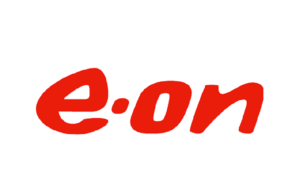
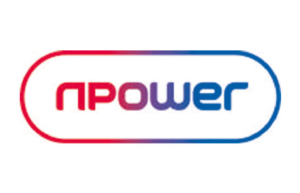
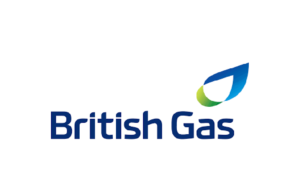
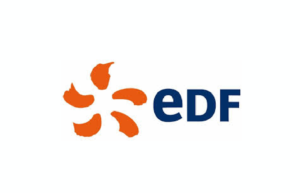
Who is eligible for free solar PV?
To receive free solar PV, then you or someone in your home must be a recipient of one of the following benefits:
- Armed Forces Independence Payment
- Attendance Allowance
- Carer’s Allowance
- Child Tax Credit
- Disability Living Allowance
- Income Support
- Income-based jobseeker’s allowance (JSA)
- Income-related employment and support allowance (ESA)
- Industrial injuries disablement allowance
- Pension Credit Guarantee Credit Element
- Personal independence allowance
- Personal independence payment
- Severe disablement allowance
- Universal Credit
- War pensions mobility supplement
- Working tax credit
- Child benefit dependant on income & dependants
How does a solar PV system work?
Photovoltaic solar systems use cells, consisting of several layers of semi-conducting material, to convert solar radiation into electricity. The material is usually silicon, which is the second most abundant element on earth after oxygen. When light shines on the cells, an electric field is created across the layers, causing electrons to flow, which leads to electricity. Individually, each cell only conjures up a minuscule amount of electricity. However, when they are connected, in the form of solar panels, they can create electricity in larger quantities.
An inverter then converts the direct current to an alternating current, or a mains equivalent, making electricity which is suitable for running appliances. Grid connected systems can transfer the electricity they do not use to the grid, while also possessing the ability to import it from the grid when there is not enough sunlight.
Grants provided by


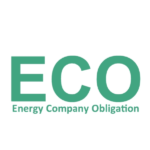



Is solar PV a good investment?
Solar panels make for a good investment, if you live in an area that has higher than average electricity rates. The initial cost of solar panels can be off putting; however, this will likely balance out after roughly ten years. There is also the longer term attraction, of how installing solar panels can potentially increase the value of your home. The amount that your property rises in value, will depend on the type of system you choose and the power it produces.
What are the advantages of solar PV?
As previously mentioned, it is possible for homeowners to recover their investment after just a few years. Of course, the speed in which this happens will depend on the size of the system and the energy it produces. Some solar panel systems make enough energy to sustain an entire household, making it the exclusive source of energy. If this is the case, after you have recovered the initial cost of the solar panels, the energy produced is technically free.
There are several more advantages when you get past the upfront cost of solar PV. Solar panels can last anywhere from 25 to 40 years. During their lifespan, the maintenance costs are relatively low, because no additional money is needed to keep the system functional. However, when you install them, you need to establish the optimal position for your solar panels, to allow them to be as efficient as possible.
In the case of continues sunny conditions, solar panel systems collect excess energy from the sun. Instead of this energy going to waste, it can be sold to the national grid. This makes solar panel systems a profitable long-term investment, because not only is the household’s energy demand fully covered, but a profit can also be made from selling the surplus energy back to the grid.
How much do PV panels cost?
For the average UK household, solar panels cost £5,940, although, you can spend up to £10,000. At £350 per panel, the exact fee you pay will mostly depend on the size and occupancy of your house.
As well as, needing around 20m² of roof space, a family of three typically require a 3.6 to 4kW solar PV system, which usually consists of 12 to 13 panels. While this might lead to an expensive, upfront fee, the cost of solar power has fallen by 25% over the last six years.
The power of a photovoltaic cell is measured in kilowatt peak, which is how much energy it can generate at peak performance during the summer. Solar panels should cost around £1,562 per kW. The higher the efficiency and power of the solar panels, the more electricity your home will generate.
What are the different types of solar panel systems?
There are a variety of solar panel systems currently available on the market. In the UK, you will likely find systems ranging from 1 kWh to 6 kWh. There are systems bigger than these, although, they are usually sold to businesses. The different systems are chosen depending on household size and the individual needs of the homeowner. The power output of each system varies, for example, 1kW panel produces approximately 850 kWh per year, while the 6 kWh panel system produces 6000 kWh per year. It is also worth considering that the systems on the larger side, require more roof space for installation.
Can I get a grant for solar PV?
You can get a grant for solar panels through the Government’s ECO scheme. The ECO scheme was implemented by the government, to help low-income households make home energy efficiency improvements. Not only is this scheme designed to help households reduce their carbon footprint, but it also intends to save people money on their energy bills.
Who qualifies for the free solar PV grant?
To qualify for a free solar PV grant under the Government’s ECO scheme, you must either own your property or rent it privately and have the landlord’s permission to make the relevant changes. In total, there is roughly £1.3bn worth of funding on offer for those who receive a form of government benefits. 6.5 million households are eligible for the scheme, and the government hopes to make energy-saving improvements to 900,000 homes by March 2022. However, most of this funding has not been claimed, with many lower-income households paying more than they need to for their energy bills. Home owners should find out if they are eligible for a solar panel grant immediately.

